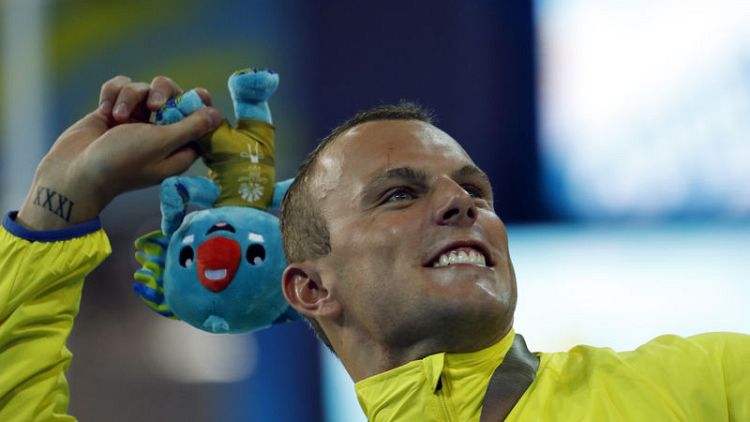SYDNEY (Reuters) - Olympic 100 metres freestyle champion Kyle Chalmers swam the fastest time of the year in the blue riband event on Monday and then warned his rivals at this year's world championships that he is only going to get faster.
Chalmers, who stunned the world by winning gold in Rio as a teenager in 2016, knocked a tenth of a second off his personal best at the Australian swimming championships, clocking 47.48 seconds to take the title for the second year in a row.
A swim that fast at this stage of the season, long before he starts tapering for the world championships in Gwangju in July, was a major statement from the powerful 20-year-old.
"There's not many things that I want to change," he said on Monday after the race in his home city of Adelaide.
"But there's probably those few things that are going to come with taper and swimming that bit faster in training.
"My skills are still things that are lacking. And I know if I can drop those 0.1 of a second, everything adds up."
Chalmers flew under the radar before his success in Rio and missed the 2017 season, including the world championships in Hungary, after having a second corrective surgery on a condition that rapidly increased his heartbeat during exercise.
He returned in 2018 to win 200 gold at the Commonwealth Games on the Gold Coast last year before winning the 100 title against a strong field at the Pan Pacific championships in Tokyo.
With the worlds in South Korea and defence of his Olympic title coming up in Tokyo in 2020, Chalmers knows he has plenty of work to do on every part of his race over the next 15 months.
"I know that my skills are coming, it's just about practising it every time I do a turn in training," he said.
"We do hundreds of them a day. And you can practise bad skills pretty easily with the amount we do.
"So it's practising those right things and your muscle memory coming into a race - you don't want to be thinking about it too much, you just want it to happen naturally."
(Reporting by Nick Mulvenney, editing by Peter Rutherford)
